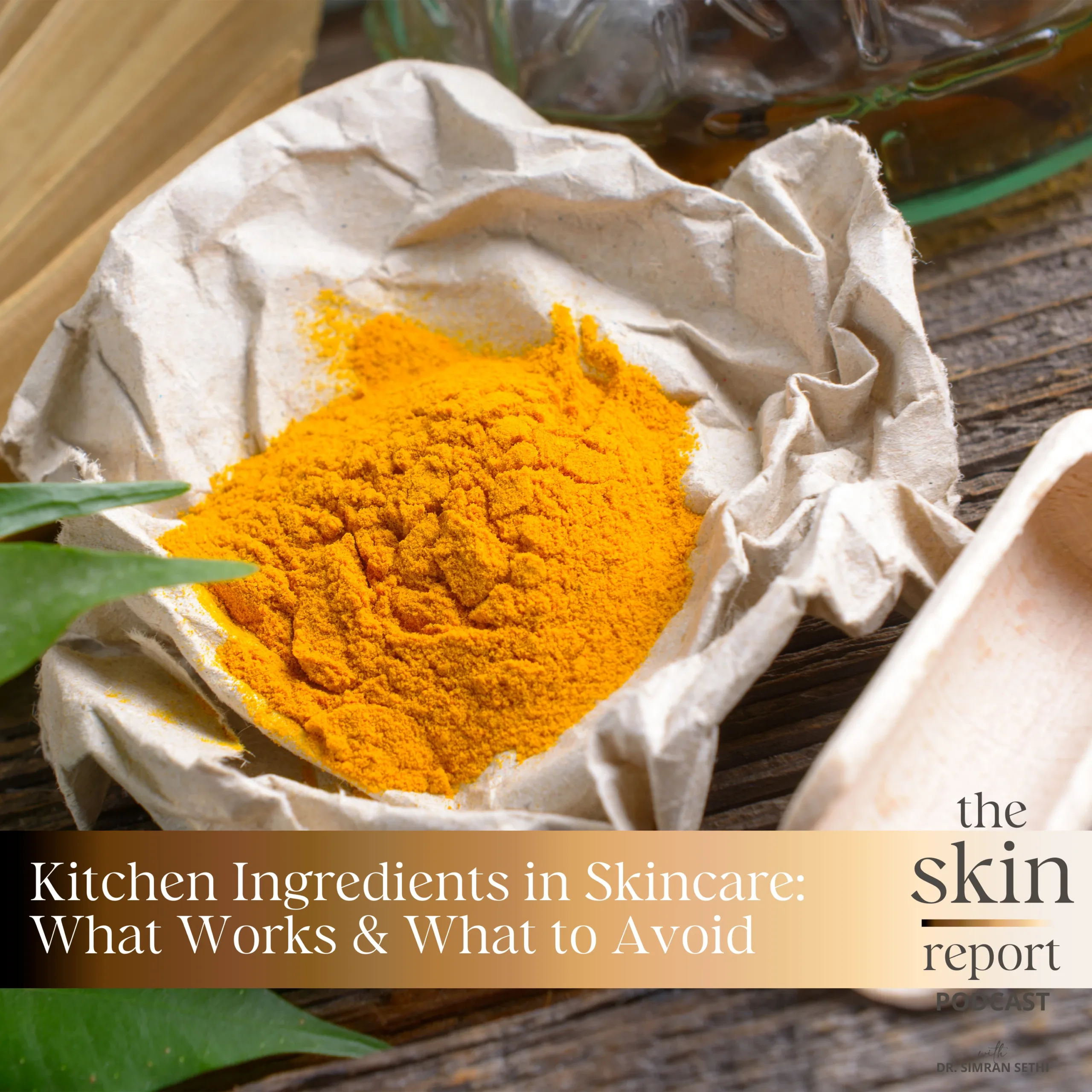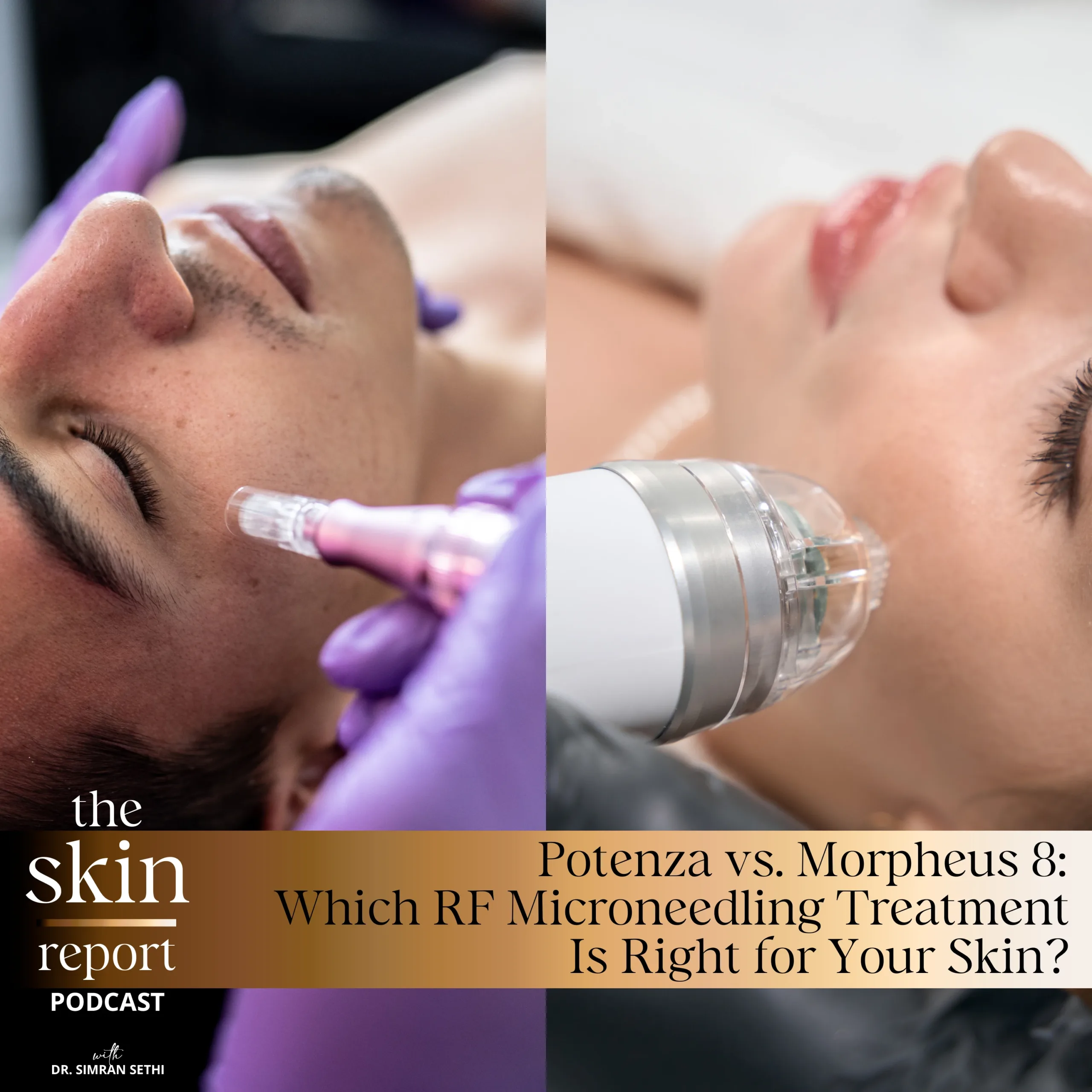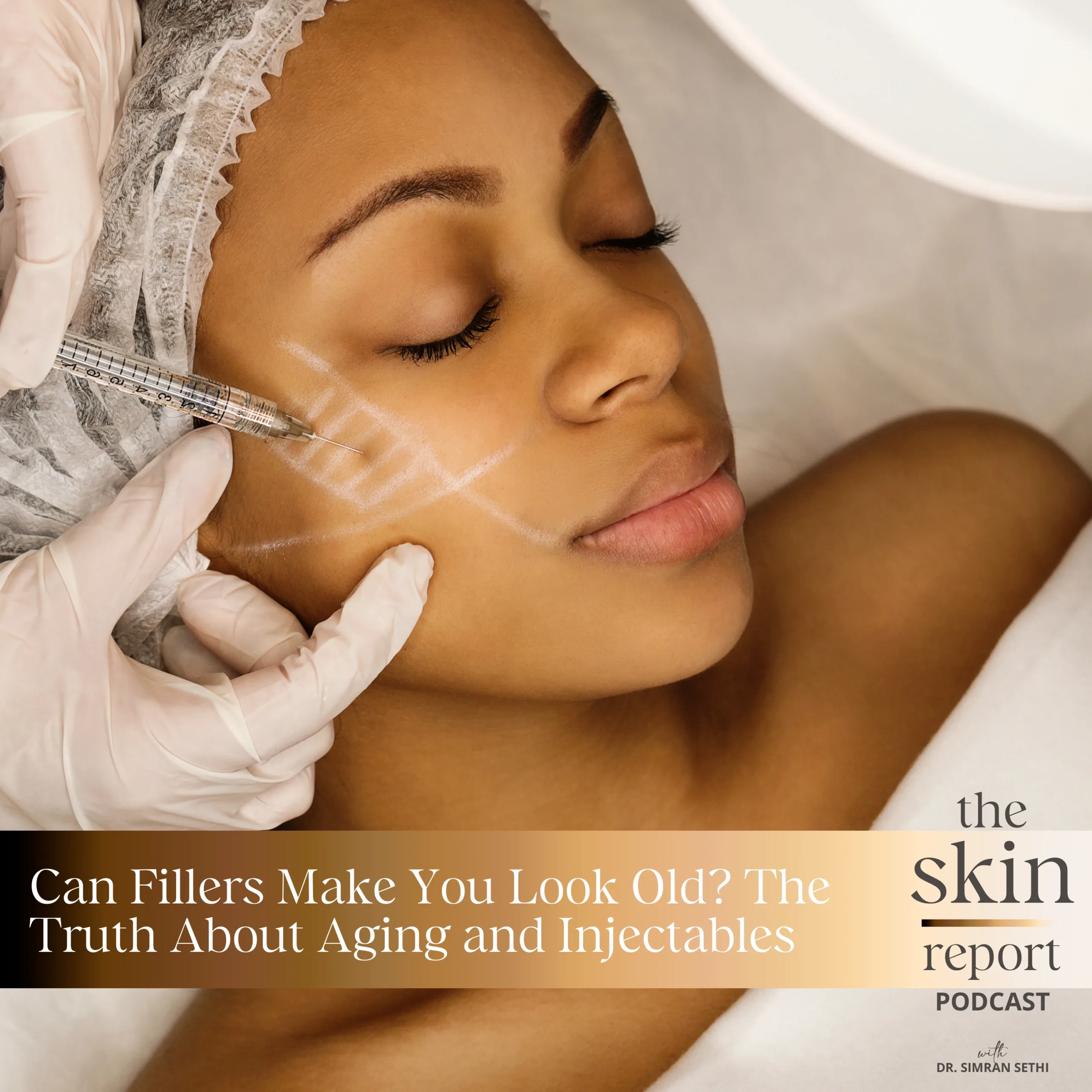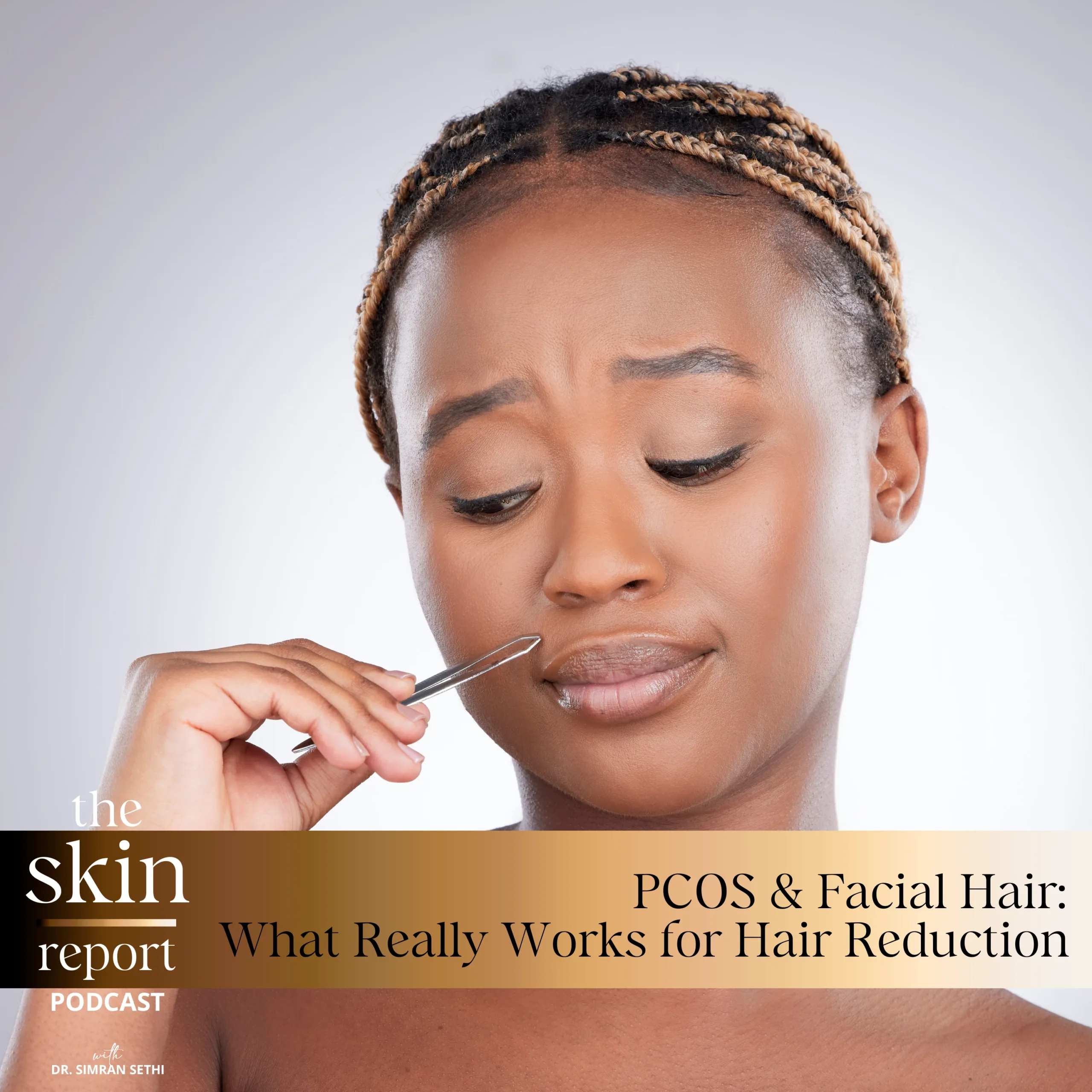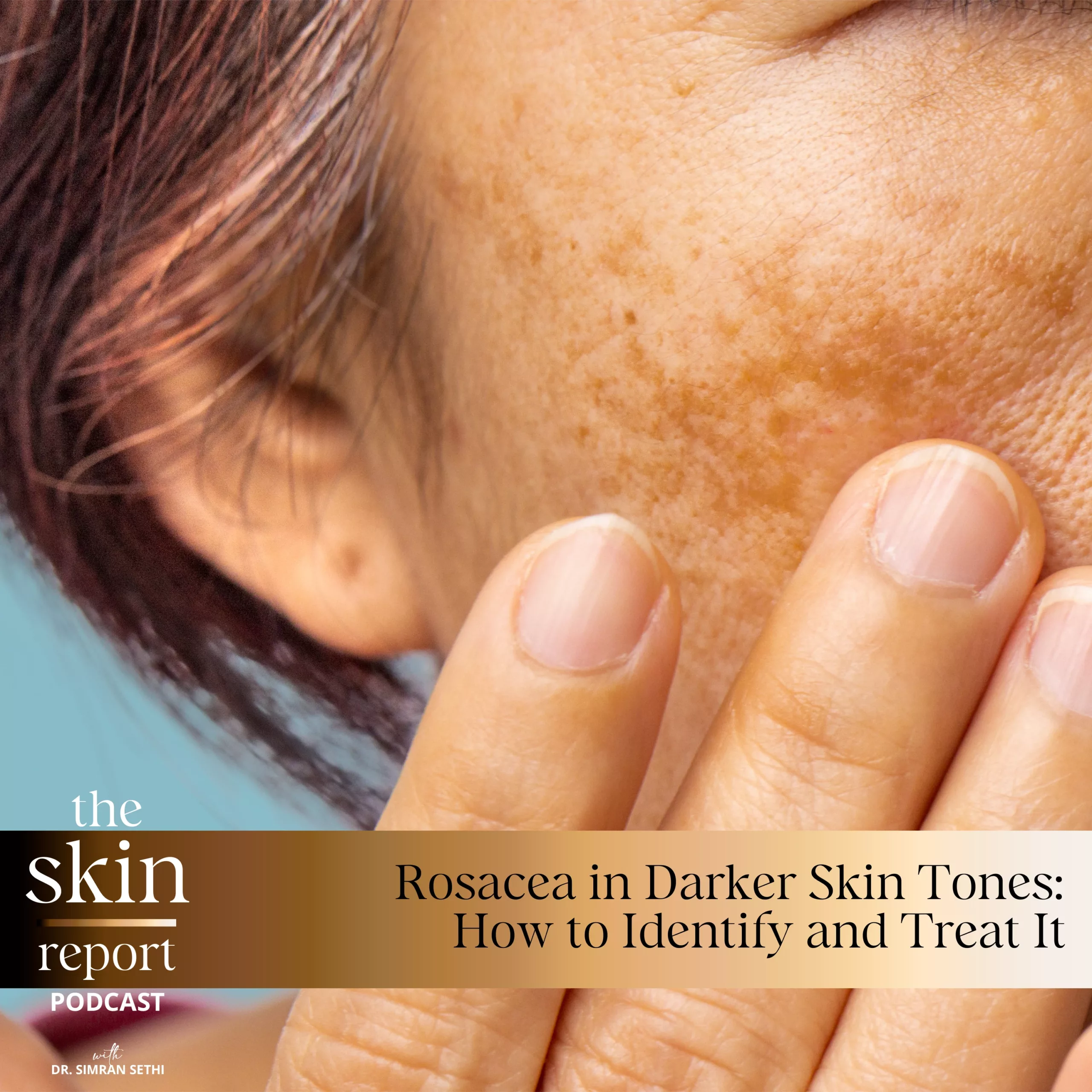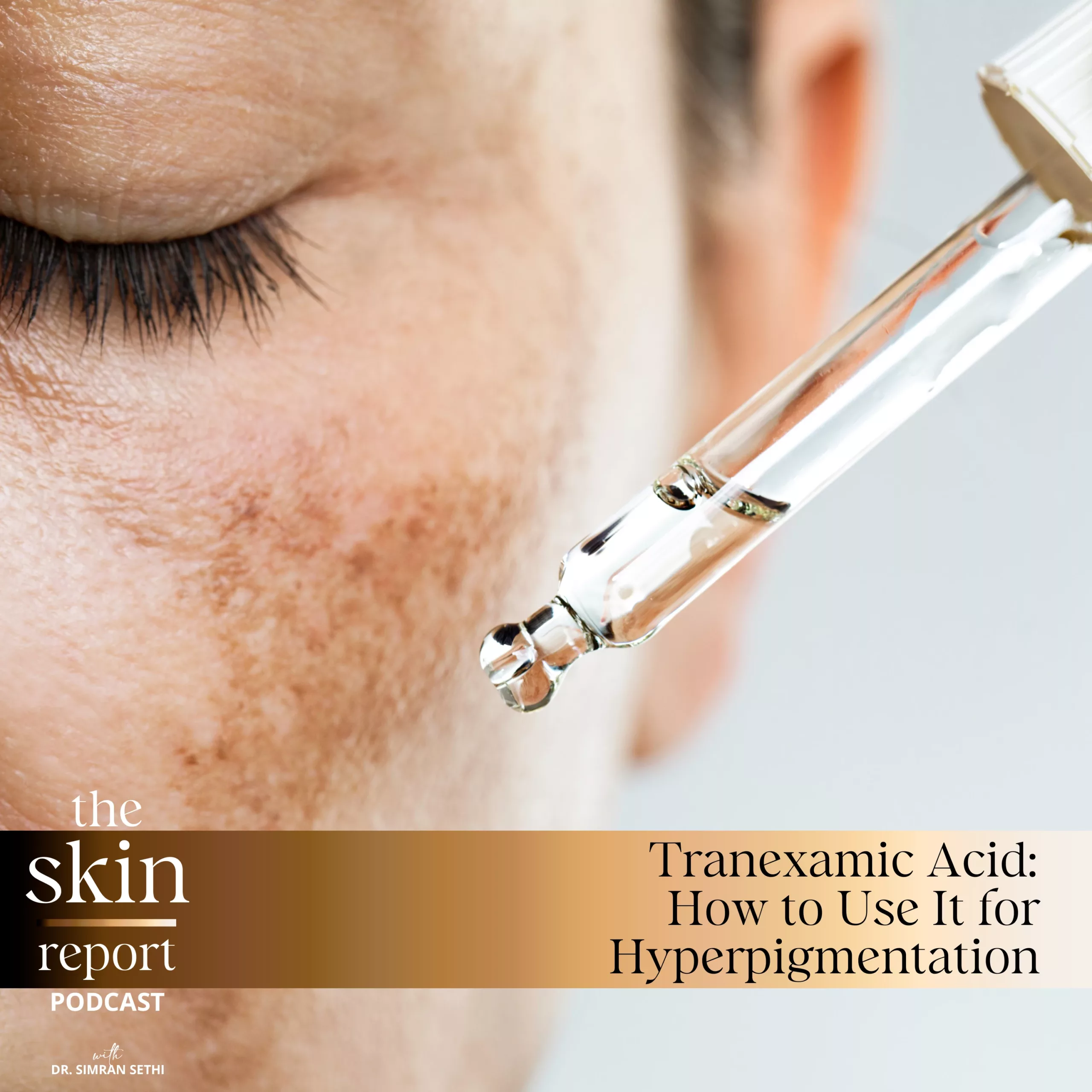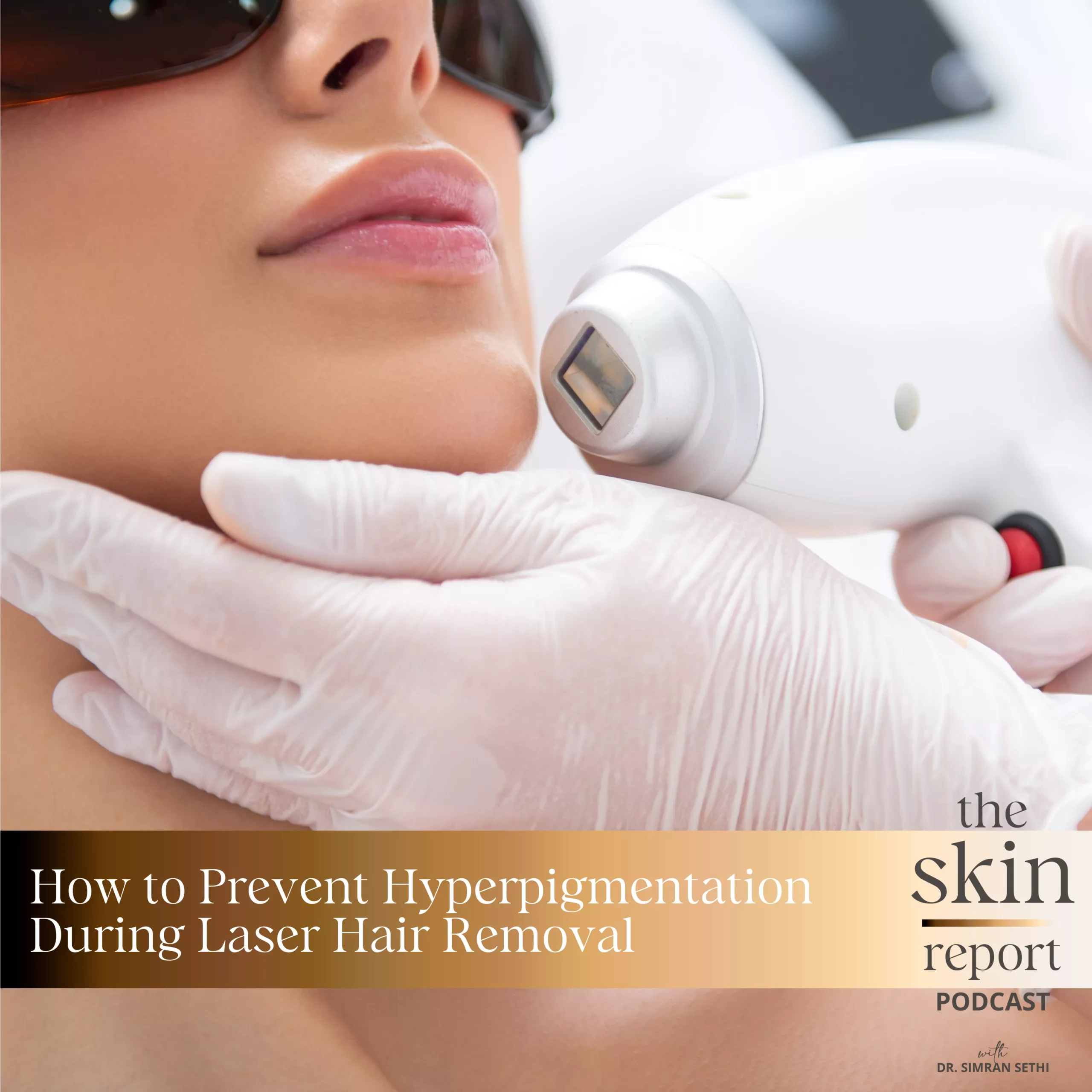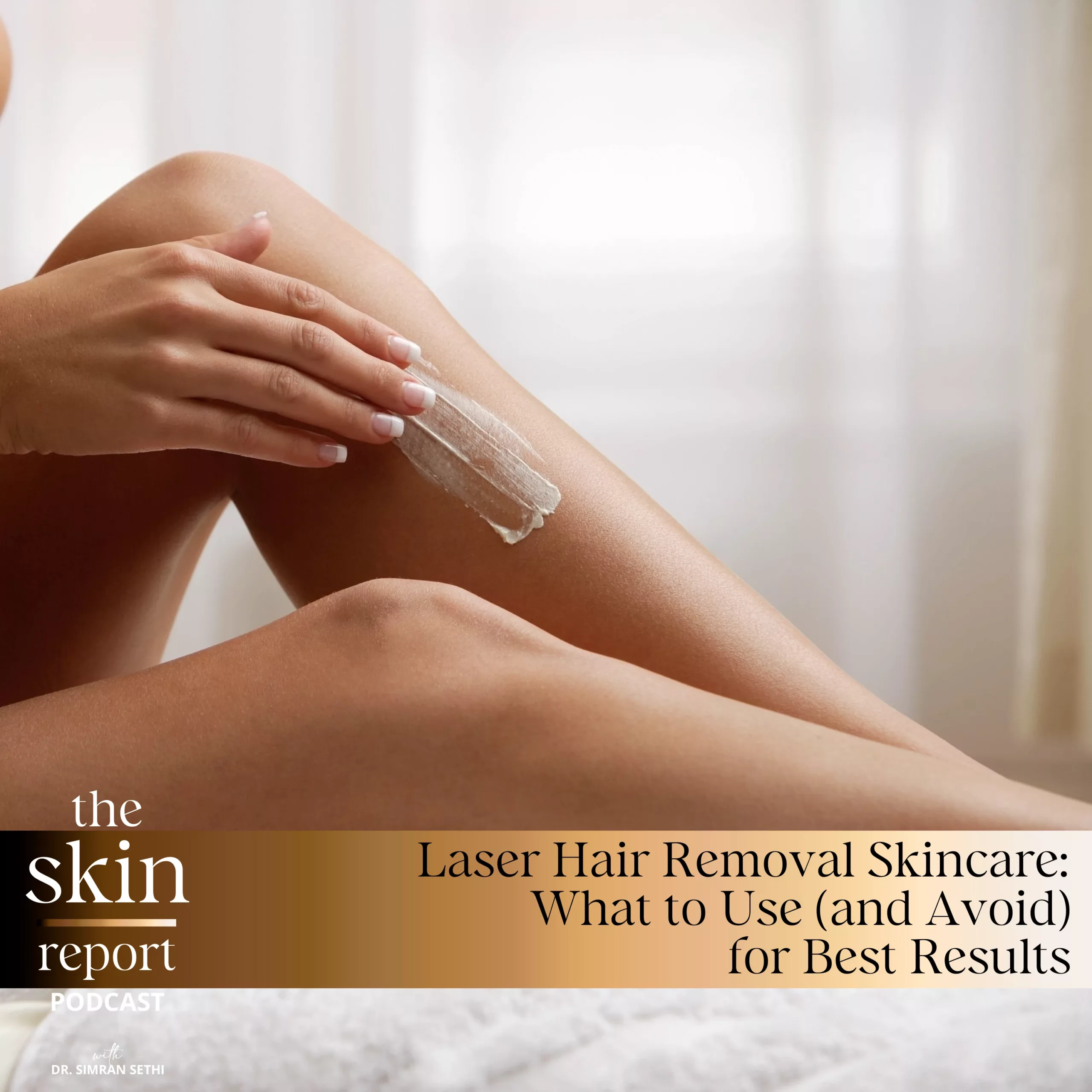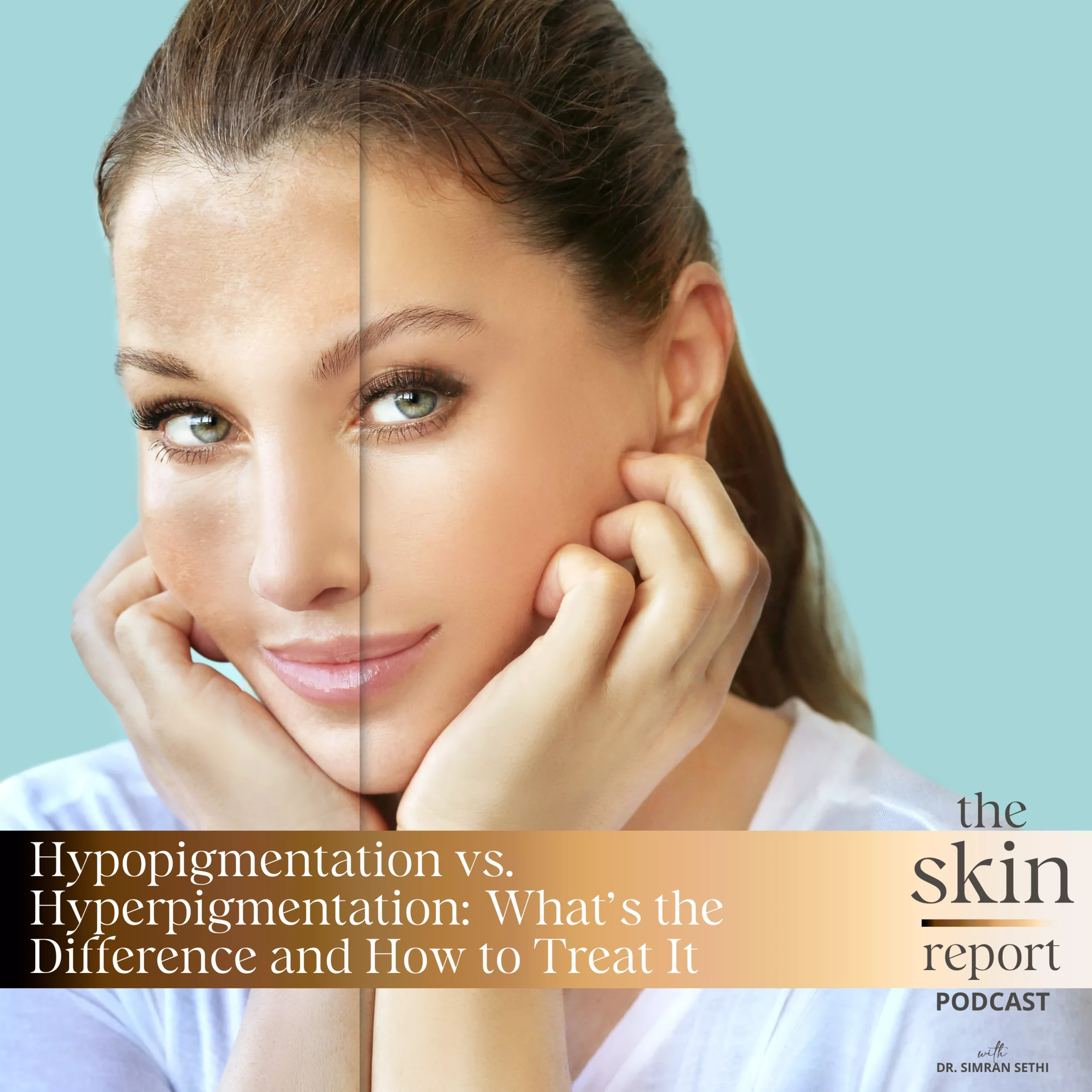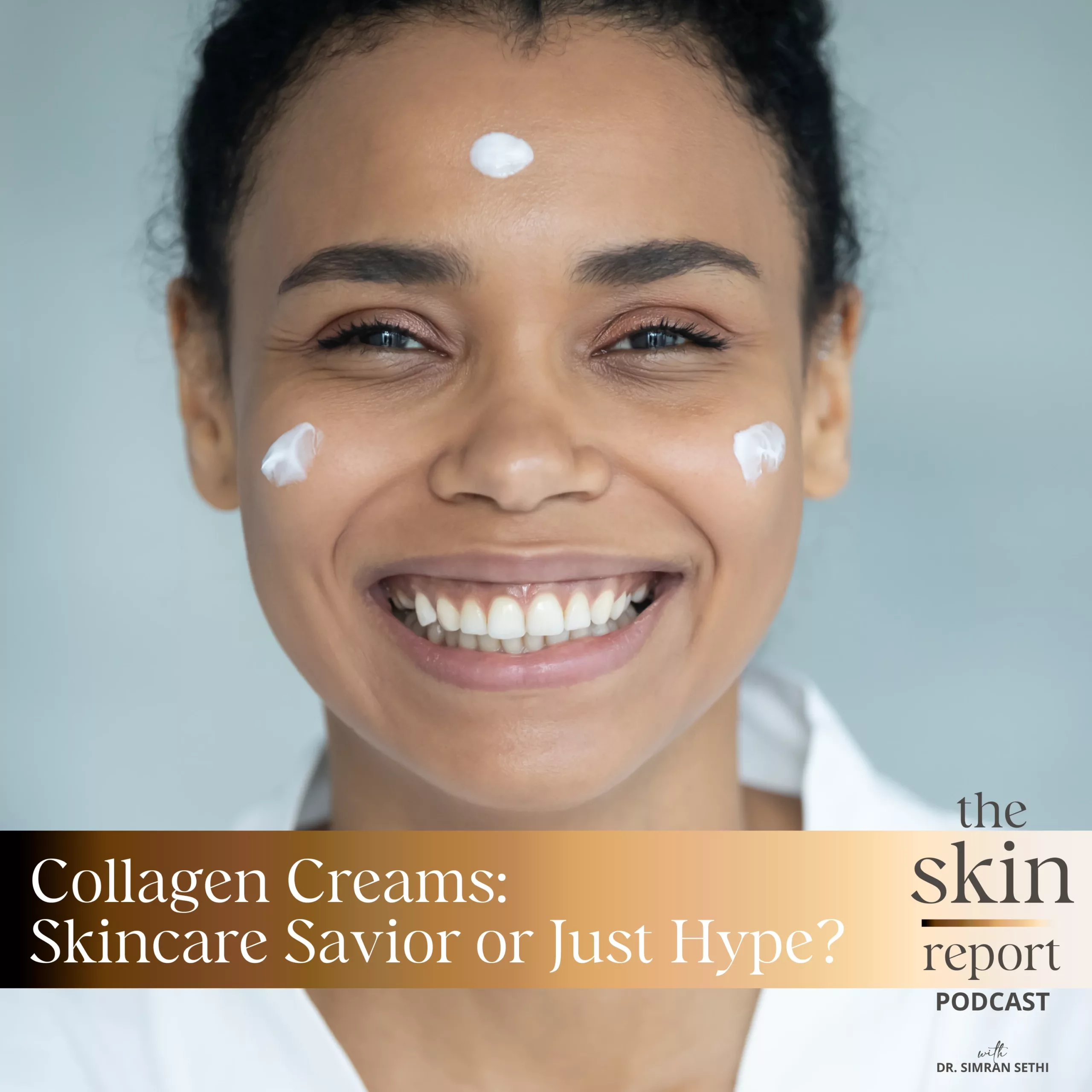Dr. Simran Sethi:
Welcome to the Skin Report. Today, we are going to talk about the best anti-aging products and ingredients for all skin tones. And again, if you are someone who enjoys learning about beauty trends, skin, medical aesthetic treatment, skin care, please follow us like and ask us any questions in your comments. Welcome to the new Skin Report, a dedicated space for exploring the world of skincare, medical aesthetics and beauty, especially for women of color. We are bringing the same insightful discussions into a vibrant new format where you can both hear and see the world of skincare and medical aesthetics come alive. So join us on the new Skin Report. Let’s explore, learn, and grow together. Hit subscribe and let’s make skincare and self-care a journey we embark on together. So I’m joined with my host Shaheera and excited to talk about a topic which can be very confusing.
Shaheera:
Yes, the anti-aging skincare product, the industry, it’s huge, the anti-aging industry.
Dr. Simran Sethi:
Yes.
Shaheera:
And first and foremost, from your medical aesthetics background, what do you consider? What is clinically skin aging? What are the symptoms and signs of aging skin? Of course, we’re all aging, but what are those obvious signs?
Dr. Simran Sethi:
Yeah, no, I think that’s the best place to start.
Shaheera:
Or are they obvious?
Dr. Simran Sethi:
Are they obvious? Yeah, that’s very true. And yeah, if you know what aging is and you can get the right skin regimen-
Shaheera:[inaudible 00:01:38]. Right.
Dr. Simran Sethi:
… that is exactly. So we are obviously constantly aging and we start aging as soon as we’re born. That doesn’t mean that you have to have skincare to fight that.
That is why the trend of 12 and 13-year-olds going and they don’t want to get old, really, really heavy-duty, anti-aging skincare is I don’t think warranted. But anyway, basically skin aging means that there’s a slowdown in the cell turnover or repair of your skin. Our skin is one of the few organs we have where we are in constant renewal mode, making new skin cells constantly. And as we age, that rate of repair goes down. And a nice analogy I use when I’m talking to my patients is if you take someone in their 20s versus someone in their 50s and they’re both being exposed to the same amount of UV exposure, environmental stressors and so forth, but why does the person in their 50s have more wrinkles, dark spots versus a 20-year-old?
The difference is the 20-year-old is making new skin and erasing all that damage in 10 days, 14 days versus a 50-year-old is taking eight to 12 weeks to repair that. And so if that’s the case, you go, okay, well then are you okay when you’re 20 and you’re in your 20s, should you not even worry about aging? And I think that is something that’s evolving over time. I will say in my practice, in medical spas typically, if we look at them 20 years ago, the client base was mostly women in their 50s and above. Today, the medical spa space has mostly women also, we’re seeing a lot more men, but they’re mostly between the ages of 25 and 40.
That’s where I think this concept of collagen banking comes in. And I truly believe in collagen banking, we’ve done a whole episode on it and it really explains why you can start anti-aging by collagen banking early in life so that you have greater dividends later on. You will spend less time, less money, look great if you start anti-aging early. And it’s not [inaudible 00:04:07].
Shaheera:
No, not at all. And when it does come to skin aging and identifying that, can you explain the aging symptoms? Now accelerated aging, I feel like it’s always weird to say aging symptoms, like you said, we’re all aging, but the most common skin aging side effects for the lightest to medium skin tones. And then the most common skin aging side effects from the medium dark, us, let’s say to deep darkest skin tones.
Dr. Simran Sethi:
So a lot of people of color think that they don’t age.
Shaheera:
Yes, yes.
Dr. Simran Sethi:
And that’s not true. Or their skin doesn’t age or doesn’t age for a long time. Again, not true. We are all molecularly the same. But the difference is the symptoms of aging are different. So people with a skin type one through three, lighter skin tones, will form fine lines and wrinkles earlier on. Usually we start seeing them in the late 20s onwards and they experience more skin sagging. People of color, on the other hand, their aging involves dark spots, pigmentation showing up on the skin surface early, late 20s. So exactly same timeframe, but different symptoms. And then fine lines and wrinkles do appear of course, but maybe a little bit more like a decade after their counterparts in the lighter skin category. And that means that we should all be anti-aging. But maybe the ingredients are different because the targets for those aging, the symptoms are different, so the targets are a little different.
But the one common ingredient that everyone needs to consider is retinol. Retinol is a product or an ingredient that will actually make your skin renewal get more rapid so that your skin, even when you’re 50, is behaving and turning over like it was when you were 20. And that’s the key. So if you are not using a retinol or scared of using a retinol, we have episodes on how to pick the right retinol for your skin tone, age and skin type and all of that, please listen to it because it gives you, I’m hoping, all the tools to pick one because it is so effective.
Shaheera:
And also picking the right amount. In addition to retinol and some skin renewal and collagen renewal are the primary anti-aging goals and healthy skin renewal goals, some other ingredients. You, I know, are a huge fan of a stabilized vitamin, medical-grade antioxidants. Do you have any other antioxidants, peptides that you can suggest for people to look out for once they’re shopping around? Because I think it simplifies it once they know here’s a nice category of four or five ingredients and just make sure you have those.
Dr. Simran Sethi:
Yeah, exactly. So I would say three things. So retinol is one. Number two, a serum that is either an antioxidant, vitamin C, vitamin E, green tea, these are antioxidants. Or has peptides. If you see the word peptides, great. They signal repair and collagen production. There are a lot of marine algae. You see a lot of marine algae. So really high-end brands, even in my skincare line, we’ve used marine algae because they’re actually very high in antioxidants and really signal collagen production. And you will also see maybe some minerals like copper. There’s actually quite a bit out there, which we’re so lucky to have access to, but antioxidants, peptides, marine algae, usually those are pretty much synonymous with anti-aging and they’re great for your skin at any age.
So in your 20s you can totally use those. They’re not going to harm you in any way, they’re repairers. And after that, the next category is the protection category. So that would include sunblock, which everyone kind of knows. A lot of people know this, but what they don’t know is the most important part of sunblock and sun protection is blue light protection because blue light has been shown to cause hyperpigmentation in darker skin tones, break down collagen in both skin types, also go down deep into the fat layer under our skin. And that fat layer is important. It helps our skin stay tight and lifted. And we have other episodes talking about fat and how it affects skin lifting and so forth. But yes, blue light protection is equally important as the other two categories.
Shaheera:
The two things I’d like to kind of summarize with because I think it’s important to also, you do a great job simplifying things, when people are looking at an ingredient list, those ingredients, if they are one of the predominant, if it’s an active ingredient, they should be listed in the first five to 10 ingredients on the ingredient list. If there’s a lot of ingredients prior to it, know that it’s probably a filler or it’s there to create a textural or foaming effect depending on what product it is. The other thing is begin anti-aging or just collagen building with skin renewal products before it feels like it’s too late. So that’s the other thing. It’s like just because you don’t see it happening to your skin doesn’t mean it’s not happening to your skin.
Dr. Simran Sethi:
Exactly. Exactly. So a lot of people with skin type four and greater darker skin tones are very focused on depigmentation bleaching, reduction in pigmentation. What they actually should be focusing to address exactly that is anti-aging because that is the symptom of aging. So if you now reverse that thought process, you go, “Oh, okay, so all I have to do is focus on anti-aging and that pigment correction will actually become the side effect of your great efforts to anti-age.”
Shaheera:
Yeah. And you won’t experience those side effects.
Dr. Simran Sethi:
Exactly.
Shaheera:
Right.
Dr. Simran Sethi:
Exactly.
Shaheera:
So I think it’s a great simplified way to look at anti-aging. You don’t have to pay $1,000 for an anti-aging cream that’s caviar-based.
Dr. Simran Sethi:
Exactly. And that’s the other thing. One product is not going to be enough, unfortunately.
Shaheera:
Exactly. That’s a really good point. One product cannot do it all.
Dr. Simran Sethi:
Exactly. So think of these three product categories. And again, we have an episode on how to use them in your routine. What do you do during the daytime, what do you do during nighttime and simplified it. So if you are ready to take on anti-aging, then do listen, I think people should listen to those episodes to simplify it even further. Thank you everyone for being with us today. And if you enjoy learning about skin trends, beauty trends, medical aesthetic news, then like, subscribe and of course interact with us through your comments.


